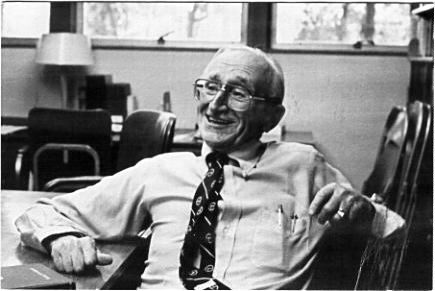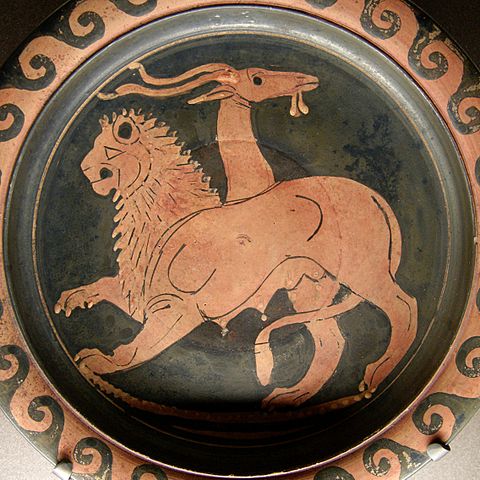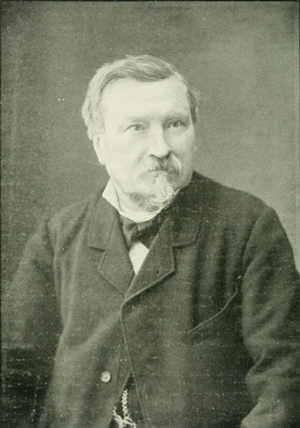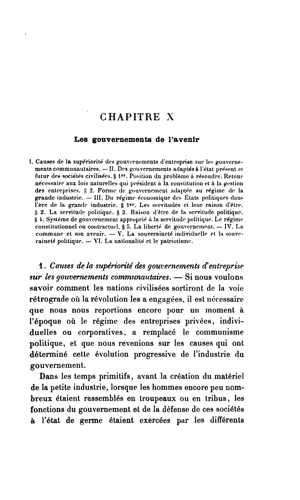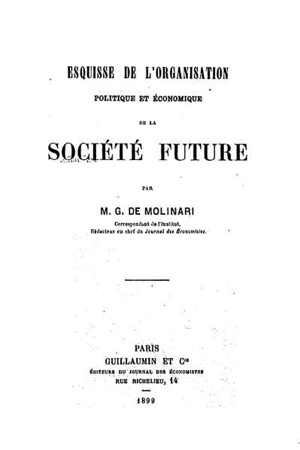[Note: This post is part of a series on the History of the Classical Liberal Tradition]
There are numerous similarities as well as considerable differences which separate modern day CL/L (classical liberals and libertarians) similarities from their intellectual forebears – the radical and moderate liberals of the 19th century.
The Similarities
Like the CLs of the 19th century, modern day CL/Ls are also split into two camps, the “radical” libertarians (such as Murray Rothbard and his many followers who call themselves “anarcho-capitalists) and the “moderate” libertarians who support the idea of a strictly limited state (such as the novelist Ayn Rand, Friedrich Hayek, Milton Friedman, and Robert Nozick).
[See “Anarcho-Capitalism” EoL, Brian Doherty, “Rothbard, Murray (1926-1995)” EoL, “Rand, Ayn (1905-1982)” EoL, Ronald Hamowy, “Hayek, Friedrich A. (1889-1992)” EoL, “Friedman, Milton (1912-2006)” EoL, Ellen Frankel Paul, “Nozick, Robert (1938-2002)” EoL.]
In addition, CL/Ls are also divided by what they consider to be the ultimate foundation upon which the case for liberalism stands, i.e. the supporters of “natural rights” and those who are “utilitarians” (or “consequentialists”).
These differences among modern day CL/L may remain a rift within the liberal tradition which is ultimately unsolvable. It will not become a problem which needs to be resolved until the happy day comes when the state has been so reduced in size and scope that its final size needs to be decided. In the meantime, the two camps can live together very amicably since they share so much else in common.
The Differences
The differences which separate modern day CL/Ls from their classical forebears are much more numerous and extensive, and result to a large extent from the advances in economic theory which have been made in the intervening period, especially the insights provided by the Austrian and Public Choice schools of economic thought. Overall, I would argue that modern economic theory (public choice, Austrian) provides a much better foundation upon which to build the case for economic freedom and the liberal “system of natural liberty” (Adam Smith, WoN, Bk. IV, chap. IX).
Both groups have different reasons to be optimistic or pessimistic about the productive power which free markets and free individuals can unleash, the power of the state and various vested interest groups to retard or impede this development, and thus affect the overall prospects for liberty.
Modern CL/Ls also have the historical example of massive government intervention in the economy during the 20th century to draw upon to make it certain beyond any doubt how destructive the state was and could be again. The moderate liberal John Stuart Mill could in the mid-19th century perhaps reasonably make the claim (Bastiat thought not) that the final word could not be uttered on the “practicability” of socialism as nowhere had it been tried in full. (Strangely, this argument is still made today by supporters of socialism.)
§ 3. Whatever may be the merits or defects of these various schemes, they cannot be truly said to be impracticable. … The objection ordinarily made to a system of community of property and equal distribution of the produce, that each person would be incessantly occupied in evading his fair share of the work, points, undoubtedly, to a real difficulty. But those who urge this objection, forget to how great an extent the same difficulty exists under the system on which nine-tenths of the business of society is now conducted. …
If, therefore, the choice were to be made between Communism with all its chances, and the present state of society with all its sufferings and injustices; if the institution of private property necessarily carried with it as a consequence, that the produce of labour should be apportioned as we now see it, almost in an inverse ratio to the labour—the largest portions to those who have never worked at all, the next largest to those whose work is almost nominal, and so in a descending scale, the remuneration dwindling as the work grows harder and more disagreeable, until the most fatiguing and exhausting bodily labour cannot count with certainty on being able to earn even the necessaries of life; if this or Communism were the alternative, all the difficulties, great or small, of Communism would be but as dust in the balance. But to make the comparison applicable, we must compare Communism at its best, with the regime of individual property, not as it is, but as it might be made. The principle of private property has never yet had a fair trial in any country; and less so, perhaps, in this country than in some others. The social arrangements of modern Europe commenced from a distribution of property which was the result, not of just partition, or acquisition by industry, but of conquest and violence: and notwithstanding what industry has been doing for many centuries to modify the work of force, the system still retains many and large traces of its origin. The laws of property have never yet conformed to the principles on which the justification of private property rests. They have made property of things which never ought to be property, and absolute property where only a qualified property ought to exist. They have not held the balance fairly between human beings, but have heaped impediments upon some, to give advantage to others; they have purposely fostered inequalities, and prevented all from starting fair in the race. That all should indeed start on perfectly equal terms, is inconsistent with any law of private property: but if as much pains as has been taken to aggravate the inequality of chances arising from the natural working of the principle, had been taken to temper that inequality by every means not subversive of the principle itself; if the tendency of legislation had been to favour the diffusion, instead of the concentration of wealth—to encourage the subdivision of the large masses, instead of striving to keep them together; the principle of individual property would have been found to have no necessary connexion with the physical and social evils which almost all Socialist writers assume to be inseparable from it.
Private property, in every defence made of it, is supposed to mean, the guarantee to individuals of the fruits of their own labour and abstinence. The guarantee to them of the fruits of the labour and abstinence of others, transmitted to them without any merit or exertion of their own, is not of the essence of the institution, but a mere incidental consequence, which, when it reaches a certain height, does not promote, but conflicts with, the ends which render private property legitimate. To judge of the final destination of the institution of property, we must suppose everything rectified, which causes the institution to work in a manner opposed to that equitable principle, of proportion between remuneration and exertion, on which in every vindication of it that will bear the light, it is assumed to be grounded. … but a mere question of comparative advantages, which futurity must determine. We are too ignorant either of what individual agency in its best form, or Socialism in its best form, can accomplish, to be qualified to decide which of the two will be the ultimate form of human society.
[PPE, Bk. II. Distribution, chap. I “Of Property”.]
Socialism was still in his view an attractive possibility which needed to be tested before it could be disregarded, in spite of the obvious failures of the National Workshops of Louis Blanc during the first year of the Second Republic after the 1848 February Revolution, and all of Frédéric Bastiat’s prescient warnings and criticisms.
Below is my list of some of the major differences between 19th century liberalism, in no particular order:
- The Cause of Business Cycles
- The Impossibility of Rational Planning under Socialism
- The Unwarranted Fears of the Malthusians
- The Destructive Power of Modern Warfare and the Willingness of People to engage in it
- The Dynamic Nature of Interventionism
- The Enduring Appeal of the Socialist Vision/Ideal
- The Inclusion of more Groups within the “Sphere of Liberty”
- The Rejection of Empire as a Force for Liberty
The Cause of Business Cycles
19thC CLs did not have a good theoretical understanding of the nature and cause of business cycles (although some came close) and this made them vulnerable to the socialist criticism that they were inherent in the “capitalist” system and something only a complete change to a socialist economic system would remove. The hardships caused by periodic downturns in the economy and the resulting unemployment hurt the poorest members of society the most. Exposing this suffering was a major reason for support by intellectuals of the Marxist critique of “capitalism” and its supposed self-destructive tendencies. Even non-Marxists thought that periodic recessions could only be fixed by state regulation of banks and the money supply. It would not be until the work of the Austrian economists Ludwig von Mises and Friedrich Hayek in the 1930s and 1940s that a robust liberal theory of the business cycle would be developed.
[See, Lawrence White, “Money and Banking” EoL. and Austrian Theory Of Banking” EoL.]
The Impossibility of Rational Planning under Socialism :
It was an article of faith for socialist critics of “capitalism” that the profit-driven free market was chaotic, irrational, unplanned, based on selfish motives, and destructive of human well-being, and that this could only be fixed by the rational planning of far-seeing and disinterested government bureaucrats and politicians who would always act in the public’s (or the working class’s) interest and thus create “order” out of the chaos of the market.
Socialists were so certain that this would be the case that they thought it not worth their while to specify in advance how exactly government planners would do this. Marx dismissed this problem completely, assuming that capitalism would solve the problem of economic organisation and planning which the socialists, after the revolution, would simply take over and turn to their own needs (but without the waste of “profit” and the selfish behaviour of the capitalist class). Lenin did not give this problem a thought until the very eve of the Bolshevik’s coming to power and his answer in The State and Revolution (1917) was naive beyond belief. He, like Marx assumed that the problems of economic planning and organisation had already been solved, not just by large profit-making capitalist enterprises but also by government-run bodies like the Post Office and the national railways, with the added more recent example of the munitions industries oragnised and run during the First World War under instruction from Generals Ludendorff and Hindenberg (known as “Kriegssozialismus” (war socialism)).
Ludwig von Mises realised immediately (1920) that without free market prices to tell business owners and factory managers what products were most urgently demanded by consumers , what raw materials and machinery were readily available to make these wanted goods, what the cost of substitute raw materials were, what were the best combinations of raw materials, capital goods, and labour to make these goods, and most importantly, what the rate of interest was in order to judge how much they might need to borrow and how long they had to repay the loans, all the while assuming the risk entrepreneurs regularly took in getting things to market and covering their costs (with a bit left over as “profit”). Mises’ work on the “calculation debate” (in an article in 1920 and a book in 1922) showed exactly why socialism (and any other attempt at central planning of the economy by the government for that matter) was doomed to failure.
Hayek would later add the important twist that central planners had a “problem of knowledge” in that it was impossible for central planners to have all the knowledge required to make rational decisions about what and how to produce goods and services as they lacked “local knowledge” that was widely dispersed, known only to those “on the ground” as it were, and constantly changing as a result of changing consumer demand or simply because of the weather.
[See, Israel Kirzner, “Socialist Calculation Debate” EoL).]
The Unwarranted Fears of the Malthusians
If it was an article of faith among socialists that only the government could rationally plan economic activity, it was equally an article of faith among the (liberal) classical economists that Thomas Malthus’s fears that population growth (especially by the uneducated and irresponsible working class) would outstrip the ability of farmers to increase production sufficiently to feed them all. [There was also the corollary, that an ever increasing number of unskilled workers competing for a limited number of jobs in the factories would inevitably drive down wages to starvation levels (Marx’s idea of “the immiseration of the workers” thesis).] Whether from the “iron law” of geometric population growth or the “race to the bottom” of wage rates, the economists almost universally believed that the “Malthusian trap” painted a very bleak prospect for the fate of the average worker under capitalism.
Only a handful of the political economists were “optimists” who rejected this pessimistic view, most notably Frédéric Bastiat. He pointed out (in a couple of articles and then in a chapter in Economic Harmonies (1850-51) that nobody could predict how great the productive forces of the free market and free trade could be be once their shackles had been removed; or how ingenious scientific advances could increase the power of nature manyfold; or how ordinary people could plan their lives to suit their personal needs and limited circumstances. He argued that people were capable of rational thought, made plans to achieve their goals, and did not behave (i.e. “breed”) like so many non-sentient plants and dumb animals.
Modern CL/Ls are no longer as persuaded by Malthus as their 19thC counterparts had been. Bastiat’s optimistic analysis of the productive powers of the free market and modern science (a.k.a. “progress”) were taken up in the 20th century by economists like Julian Simon (1932-1998) in his book The Ultimate Resource (1981) which was a devastating demolition of modern-day Malthusians like Paul Ehrlich and others in the environmentalist movement who have repeatedly predicted (falsely) that the world was “running out” of key resources (Malthus’ prediction was that the world would soon runout of food).
[See Donald Boudreaux, “Simon, Julian (1932-1998)” EoL.]
Another reason why modern CL/Ls are more optimistic is that they can see in hindsight what Deidre McCloskey has called “The Great Enrichment”, that astonishing explosion in wealth creation which the industrial revolution and the creation of liberal societies in western societies have made possible since the late 18thC, and which has benefitted all social and economic classes. 19thC liberals thought this might happen but the evidence that it would had not yet appeared to convince many (socialist) critics of “capitalism.”
The other side of the coin of the “Great Enrichment” is that 19thC liberals had no conception of how profligate modern states would become when they got their hands on all this wealth created by the market, how they could build vast systems of wealth redistribution (“welfare states”), and how thereby they could create a new, very large “dependent class” of welfare recipients and bureaucratic administrators of this system who would naturally vote for its continuation (and even expansion) at election time. Adam Smith realised that “there was a lot of ruin in a country”, by which he meant that wasteful and destructive governments might continue in power for a long time before they had depleted the resources of a country sufficiently to cause the system to collapse or the taxpayers to revolt. 19thC liberals would be astonished at how long the modern welfare state has been able to survive given the amount of wealth they withdraw from society and the impediments they place in the path of wealth creation.
The Destructive Power of Modern Warfare and the Willingness of People to engage in it
The same might be said about 19thC liberals’ optimistic hope that
- globalisation and free trade would create groups which had a vested interest in maintaining the peace between nations (the idea behind Norman Angell, pamphlet Europe’s Optical Illusion (1909) and book The Great Illusion (1910),
- that the even then apparent increases in the destructive power of weaponry would encourage people to pull back from the brink of starting another war (this was Alfred Nobel’s idea which was shared by many). This was the thinking behind the effort of Tsar Nicholas II of Russia’s to hold a peace conference at which these issues could be discussed and thereby frighten politicians into ending the arms race and other possible causes of a future war (the Hague Convention of 1899). It was also demonstrated pretty conclusively with much technical detail by the Polish banker and railway financier Jean de Bloch (1836-1901) in his 6 volume work on The Future of War (1899) who made some remarkably prescient predictions about the destructiveness of the next war, which were borne out only 15 years later.
Both assumptions proved to be incorrect during the course of the 20th century. Events showed that countries not only had access to the wealth to engage in total war (or would borrow what they couldn’t raise in taxes or fund via inflation) but also could motivate their citizenry to participate in the fighting or endure the hardships of the home front, and kill each other in the tens of millions.
The latter point is somewhat ironic as some moderate liberals (like Richard Cobden who was radical on everything else) thought one of the few functions of the state should be to provide public education for all of its citizens. As more and more states did this (even going beyond primary and secondary levels and into higher education (the university sector)) it was able to create a body of citizens who were inculcated with the ideology of the state and nation who were more than willing to make any and all sacrifices to enable the state to carry out its wars against other states – volunteering for the army, accepting conscription when it was imposed, paying the taxes, working in the war factories, marching in the parades on their respective national days, fighting for King and Empire, and so on. These ideologies justifying the power of the state took many different forms: nationalism, socialism, fascism, communism, imperialism, ethnicity and language, or things like “the American (or Australian) way of life”. As the historian Eugen Weber put it nicely in his 1976 book, the state education system in France turned “peasants into Frenchmen” just in time for them to go off to war in 1914 to kill other Europeans who had until recently also been “peasants.” [See, Eugen Weber, Peasants into Frenchmen: The Modernization of Rural France, 1870-1914 (Stanford U.P. 1976).]
[See Robert Higgs, “Peace and Pacifism” EoL and “War” EoL and Jason Kuznicki, “Nationalism” EoL.]
The Dynamic Nature of Interventionism
As the nature of government intervention changed over the course of the 20thC and since most governments did not follow the Bolshevik Party down the road to full-throated central planning, Ludwig von Mises developed a more general theory of “interventionism” to describe these other intermediate or less extreme forms. One of the most arresting aspects of this theory is the idea that interventionism has its own “dynamic”. By this Mises meant that the policies of a government which “intervenes” in any way in the operation of the free market creates problems or “consequences” which need to be solved, either by removing the original intervention which caused the problem in the first place, or by adding another intervention to avoid this. This system created by the first intervention in other words is not stable but “dynamic.” The classic example of this interventionist dynamic is “rent control”. A government decides that rents in a city are “too high” and thus make housing unaffordable for poor renters, so price controls are introduced. This leads slowly to less rental units coming onto the market as they are less profitable for building owners, or owners cut costs by doing less maintenance thus reducing the overall quality of the stock of rental housing. This makes the problem of high rents or too few rental units worse, so one common solution is for the government to double down and start building “affordable housing” or forcing apartment builders to set aside some units for low renters. Thus we see the dynamic of the first intervention leading to further interventions come into effect. Multiply this by a factor of 100 and one soon will get the modern interventionist, regulatory state with which we are all familiar.
This poses a serious problem for those “new liberals” who think that governments can expand their powers into new areas (and thus no longer remain “limited”) such as health, education, and welfare without causing serious longterm problems as a result, and for this new expanded system of government activity to remain stable over time. If Mises’ theory of the dynamic of interventionism is true then the steady expansion of government during the course of the 20thC was inevitable, given the refusal of these new liberals to reverse their course and return to the more limited form of government moderate liberals demanded.
One might also ask these moderate liberals, given Hayek’s problem of knowledge, Mises’ economic calculation under socialism problem, and Mises’ interventionist dynamic, how liberals can rationally and efficiently supply police and defense services since they would also suffer here all the same problems any socialist would face in attempting to provide every other good or service. How much police protection is the “right” amount; does the amount provided satisfy the actual demands of the public (if so, how does the government know this?); would less costly (or more costly) alternatives be better (or worse), and again how would the government know this? These are insoluble problems for the moderate liberal just as they are for the new liberal (or the socialist) only much more so.
The Enduring Appeal of the Socialist Vision/Ideal
19thC liberals severely underestimated the enduring appeal of the socialist vision, especially to young people. As mentioned above, the appeal of socialism was hard to refute since it had never been put into practice and all its economic contradictions revealed. JS Mill was correct to argue that the real test would not be between the ideal of socialism (socialism “at its best”) and the ideal of liberalism, but between “actually existing” liberalism (or capitalism) and actually existing socialism. This was impossible to do in the 19thC but not in the 20thC. There are now so many catastrophic failures of “actually existing” socialism (or communism) and weak and sclerotic, slow growth “socialism” (or welfare statism) for liberals to draw upon, that the game is now over. Or at least it should be.
[See “Communism” EoL and “Socialism” EoL.]
I have written elsewhere on the “zombie” like qualities of socialism and the continued interest shown in it by a younger generation as numerous surveys of public opinion and articles in places like the NYT in 2017 (the 100th anniversary of the Bolshevik Revolution) and 2018 (the 200th anniversary of the birth of Karl Marx have clearly shown.
The appeal of socialism grew rapidly in the late 19thC and it would not be wrong to say that liberals gradually lost the intellectual battle for young minds. The reasons for this are not clear. It is possible that:
- classical liberals stopped articulating what their vision of a free society would look like, or
- they did not adapt their vision to fit the new conditions of the rapidly urbanising and industrialising world and it lost its appeal,
- they grew complacent and set in their ways (i.e. “conservative”) and did not complete the liberal revolutions which had begun in the late 18th and early 19th centuries; those who had been left out of this liberalisation therefore turned to other political ideologies for their vision
- they were wrong and young people were right to look elsewhere for inspiration
This loss of appeal of the liberal vision got steadily worse during the first half of the 20thC to the point where Hayek commented rather sadly in his 1949 essay “The Intellectuals and Socialism” that the liberal cause would weaken and eventually disappear unless it could make the ideal of a liberal utopia appealing to the next generation of young intellectuals.
Does this mean that freedom is valued only when it is lost, that the world must everywhere go through a dark phase of socialist totalitarianism before the forces of freedom can gather strength anew? It may be so, but I hope it need not be. Yet, so long as the people who over longer periods determine public opinion continue to be attracted by the ideals of socialism, the trend will continue. If we are to avoid such a development, we must be able to offer a new liberal program which appeals to the imagination. We must make the building of a free society once more an intellectual adventure, a deed of courage. What we lack is a liberal Utopia, a program which seems neither a mere defense of things as they are nor a diluted kind of socialism, but a truly liberal radicalism which does not spare the susceptibilities of the mighty (including the trade unions), which is not too severely practical, and which does not confine itself to what appears today as politically possible. We need intellectual leaders who are willing to work for an ideal, however small may be the prospects of its early realization. They must be men who are willing to stick to principles and to fight for their full realization, however remote. The practical compromises they must leave to the politicians. Free trade and freedom of opportunity are ideals which still may arouse the imaginations of large numbers, but a mere “reasonable freedom of trade” or a mere “relaxation of controls” is neither intellectually respectable nor likely to inspire any enthusiasm.
The main lesson which the true liberal must learn from the success of the socialists is that it was their courage to be Utopian which gained them the support of the intellectuals and therefore an influence on public opinion which is daily making possible what only recently seemed utterly remote. Those who have concerned themselves exclusively with what seemed practicable in the existing state of opinion have constantly found that even this had rapidly become politically impossible as the result of changes in a public opinion which they have done nothing to guide. Unless we can make the philosophic foundations of a free society once more a living intellectual issue, and its implementation a task which challenges the ingenuity and imagination of our liveliest minds. But if we can regain that belief in the power of ideas which was the mark of liberalism at its best, the battle is not lost. The intellectual revival of liberalism is already underway in many parts of the world. Will it be in time?
[F.A. Hayek , “The Intellectuals and Socialism”, The University of Chicago Law Review (Spring 1949).]
I will say more about the “liberal vision” in a future post.
The Inclusion of more Groups within the “Sphere of Liberty”
20thC libertarians have made an explicit effort to include more marginalised and discriminated against groups under the umbrella of the liberal ideal. One of their main arguments is that it has been the state itself, or rather the people who have assess to state power and use it for their own purposes, which has excluded these groups and that a truly universal understanding of individual liberty, self-ownership, voluntary associations between individuals, and the non-aggression principle make it imperative to extend to them (or rather recognise their already existing rights) all rights to life liberty, and property enjoyed by others. The first step then is to remove any impediments or handicaps imposed by the state on people going about their peaceful business, entering into any voluntary association with others, and enjoying the full and equal protection under the law of their rights to life, liberty, and property. The CL/L approach is thus a “negative” one, i.e. removing legal obstacles and impediments to people exercising the liberties, but it seems that many people are impatient with this approach and prefer to pursue a more “positive” approach whereby an activitist and interventionaist state uses coercion to “compensate” those who have been marginalised and discriminated against.
It is interesting to think about about how excluded groups have read declarations about “universal” rights which were written by people (usually powerful, property owning men). It was obviously not the intention of those feudal English barons or slave-owning American men who wrote and approved the Magna Carta and the American constitution respectively, to grant similar rights to their serfs or their slaves or their wives, but their solemn declarations could and would be read that way by others, who could legitimately argue that “all” means “all”, as Frederick Douglass did so eloquently in his 5th of July Oration of 1852.
The Rejection of Empire as a Force for Liberty
There were numerous French and English liberals in the 19thC who were diehard supporters of their nations’ respective Empires or colonial possessions. [Paul Leroy-Beaulieu is a good example of the French.] Central to this view was that the inhabitants of the colonies were “backward” or “primitive” and that they could be “advanced” or “civilised” by their colonial masters who would bring them the rule of law, education, railways, and the Christian religion – “la mission civilisatrice” and its corollary “the missionary position”. This view has been largely rejected by modern liberals for good reason, except for a few like Niall Ferguson. I will not go into details here, except to mention in passing the great line from Monty Python’s film “Life of Brian” (1979) which has an element of truth to it – “what did the Romans ever do for us?” Unfortunately they left out the next question which should be asked – “what did the Romans do to us?”
[See Stephen Davies, “Imperialism” EoL.]
